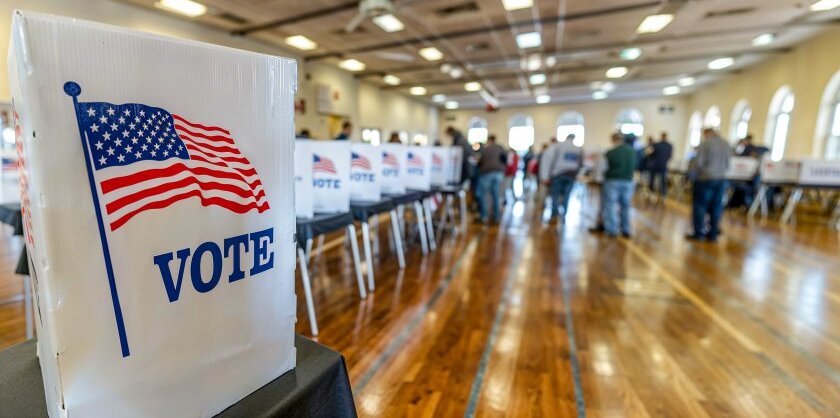What’s happened in Wyoming illustrates how closed primary elections shut too many voters out of the electoral process, intensify political polarization and raise important questions about funding these elections.
The city requires all elected officials to resign from their current positions before running for another office to help avoid conflicts of interest and leveraging offices for political gain. Some argue the state could benefit from a similar policy.
Justice Unites Us will focus on the state’s Orange County congressional races with hopes of leveraging small business hubs to increase support for Democratic candidates.
Residents will vote on a ballot measure in November that would give the Legislature veto power over rules and regulations issued by Gov. Laura Kelly. The measure was proposed by Kelly’s opponent, Attorney General Derek Schmidt.
Nonpartisan Julie Anderson has edged out the Republican candidates and will face Democratic, appointed incumbent Steve Hobbs in the November election. Hobbs won the primary by a wide margin.
Osage and Franklin counties haven’t supported a Democrat since Lyndon B. Johnson in 1964, and yet in the vote last week, the constitutional amendment to ban abortion failed in both localities.
The Florida county’s election supervisor, Alan Hays, has claimed that the county’s Republican Party and other groups have perpetuated “outright lies” of voter fraud during the 2020 elections and claims intended to cast doubt on mail voting.
If none of the proposed maps get a majority approval by Aug. 12, the map pitched by Mayor Sandy Stimpson’s administration will win by default. But the debate continues, particularly over the racial demographics of District 7.
The State Board of Elections voted unanimously to certify the Green Party as an official political party, but the deadline for new candidates was July 1; now a court order or legislative action is the last way for the party to be on the ballot.
In a typical year, voters are prevented from changing their political party affiliation between Feb. 14 and seven days after the June primary date; but due to a complicated redistricting process, voters can change parties, even on primary day.
Mecklenburg County election officials were not expecting as high of a turnout because the election, which was originally scheduled to take place last November, was held in the middle of summer.
A poll from the Atlanta Journal-Constitution found that 42 percent of likely voters were more inclined to vote for a candidate who wants to protect abortion rights and about 55 percent said they disagree with the state’s new abortion law.
Despite a growing divide between the Democratic and Republican parties, both sides of the aisle can agree on the need for reliable voting technology and protections from bad actors heading into the next election.
Ten Florida men with felony convictions have been charged with voter fraud because prosecutors say they registered and voted illegally. Critics say the punishments are unfair.
Surveillance warning signs were posted near several ballot boxes and included a QR code that linked to the county’s Republican Party website. The county will investigate the situation as potential voter intimidation.
A new statewide poll found that Democratic, Republican and Independent voters all considered inflation to be a top issue ahead of the November election and 41 percent of respondents younger than 34 years old prioritized abortion.
Most Read
















